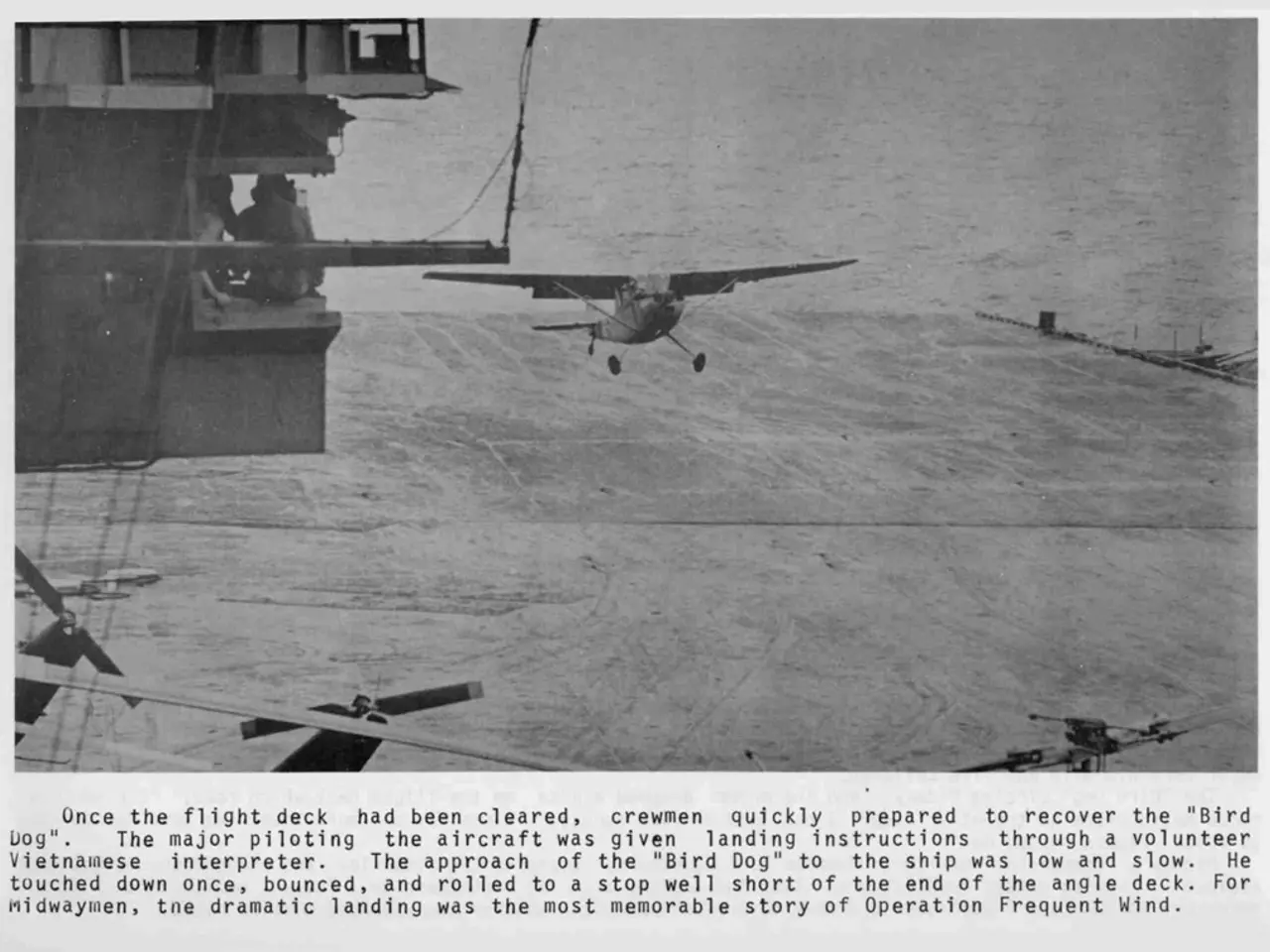Alleged Deepfake Video Discredited: Air Chief Marshal Amar Preet Singh Not Held Responsible for Fighter Jet Mishap in Official Statement by PIB
In a recent development, a deepfake video claiming that Indian Air Force (IAF) Chief, Air Chief Marshal Amar Preet Singh, admitted to losses of six fighter jets and a Heron UAV during Operation Sindoor has been officially debunked. The Press Information Bureau (PIB) verified that the clip is an AI-generated manipulated video, and the Air Chief Marshal never made such statements in his August 9, 2025, speech at the 16th Air Chief Marshal LM Katre Memorial Lecture.
The false video, which circulated on social media platforms, portrayed Air Chief Marshal Singh admitting to significant Indian losses during Operation Sindoor. However, a thorough investigation by PIB Fact Check revealed the video to be a fabrication. At no point did Air Chief Marshal Singh mention any loss of Indian jets or UAVs in his speech.
This incident underscores the growing threat of AI-generated disinformation in defence and strategic domains. To combat this menace, several measures are being implemented:
- Government Fact-Checking Units: Agencies like PIB Fact Check actively monitor, investigate, and publicly debunk false and AI-manipulated content, as was done with this deepfake video.
- Verification of Original Source Material: Full, verified videos (e.g., speeches on official YouTube channels) are used to cross-check claims and detect manipulation through comparison.
- AI and Forensic Technology: Advanced tools analyze videos for anomalies such as lip-sync mismatches, unnatural speech patterns, and irregular facial expressions typical of deepfakes.
- Public Awareness and Media Literacy: Official clarifications and debunking reports are widely disseminated to educate the public against spreading false narratives.
- Collaboration Between Defense and Cybersecurity Experts: Defense institutions increasingly coordinate with cybersecurity professionals to detect and respond to AI-enabled disinformation threats.
- Legal and Policy Frameworks: Stricter regulations on digital content manipulation and dissemination are under discussion or implementation to deter such disinformation campaigns.
These combined efforts aim to maintain strategic informational integrity in sensitive domains like national defense by enabling timely identification and rebuttal of AI-generated disinformation.
In his speech, Air Chief Marshal Singh detailed India's successful air operations during Operation Sindoor. He described the air operations as "the largest ever recorded surface-to-air kill" by India, and he provided a detailed account of the plan, war tactics, and targets destroyed in Pakistan. According to Air Chief Marshal Singh, India's precision strikes targeted Pakistani command centres in Muridke and Chaklala.
Contrary to the false claims in the deepfake video, Air Chief Marshal Singh made no such statement regarding significant Indian losses during Operation Sindoor. Moreover, he detailed the destruction of radar sites and hangars housing F-16s in his speech.
This incident serves as a reminder of the importance of verifying information before sharing it, especially in sensitive domains like national defense. By staying informed and sharing verified information, we can help combat the spread of misinformation and maintain the integrity of our strategic communications.
- The recent debunking of a deepfake video about the Indian Air Force Chief's admissions highlights the increasing role of politics in cybersecurity, as the misinformation can potentially influence strategic affairs.
- In light of the increasing use of technology in creating disinformation, the collaboration between defense and cybersecurity experts, as outlined in Air Chief Marshal Singh's speech, is crucial in maintaining general-news accuracy and strategic informational integrity.




